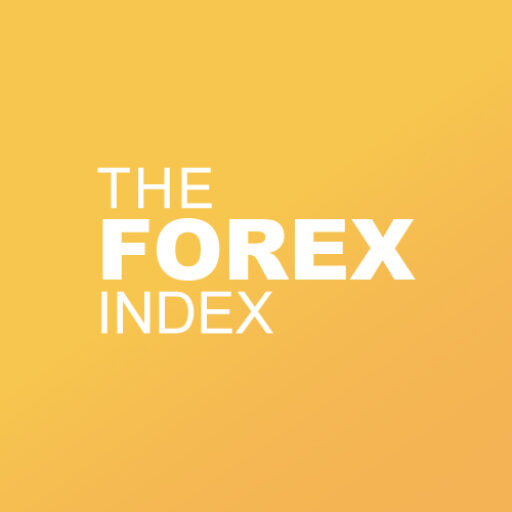When it comes to forex trading, one of the most important factors to consider is the integrity of your chosen forex broker. With so many brokers available in the market, it can be overwhelming to determine which ones are trustworthy. In this comprehensive guide, we will walk you through the key aspects of a forex broker’s integrity, helping you make an informed decision that aligns with your trading goals and aspirations.
Understanding the Broker Regulatory Environment
The first step in assessing a broker’s integrity is to understand the regulatory environment in which they operate. Different countries have different regulatory bodies that oversee forex brokers. These regulatory bodies ensure that brokers comply with industry standards and protect the interests of traders. Examples of trusted regulatory bodies include the Financial Conduct Authority (FCA) in the UK, the Securities and Exchange Commission (SEC) in the United States, and the Australian Securities and Investments Commission (ASIC) in Australia.
When it comes to the regulatory environment, it is important to note that each regulatory body has its own set of rules and regulations that brokers must adhere to. These rules are designed to promote fairness, transparency, and accountability in the forex market. For instance, the FCA in the UK requires brokers to maintain segregated client accounts, which means that client funds are kept separate from the broker’s own funds. This ensures that traders’ funds are protected even in the event of the broker’s insolvency.
In addition to segregating client funds, regulatory bodies also require brokers to meet certain capital requirements. This ensures that brokers have sufficient financial resources to cover their obligations to clients. By imposing capital requirements, regulatory bodies aim to reduce the risk of broker default and protect traders from financial losses.
Regulatory oversight provides an added layer of protection for traders, ensuring that brokers operate within strict guidelines and adhere to industry best practices. Regulatory bodies conduct regular audits and inspections to monitor brokers’ compliance with regulations. They also have the power to impose fines, suspend licenses, or even revoke licenses if a broker is found to be in violation of the rules.
Moreover, regulatory bodies often provide a platform for traders to file complaints against brokers. They have mechanisms in place to investigate these complaints and take appropriate action if necessary. This gives traders a recourse in case of any disputes or misconduct by brokers.
Furthermore, being regulated by a reputable regulatory body can enhance a broker’s credibility and reputation in the market. It signals to traders that the broker is committed to maintaining high standards of conduct and is accountable for their actions. This can help attract more clients and build long-term relationships based on trust and transparency.
In conclusion, understanding the broker regulatory environment is crucial when choosing a forex broker. Regulatory oversight ensures that brokers operate in a fair and transparent manner, protecting the interests of traders. By selecting a broker regulated by a reputable regulatory body, traders can have peace of mind knowing that their funds are safe and that they have recourse in case of any issues.
Investigating Broker Reputation and Credibility
Another crucial aspect of a broker’s integrity is their reputation and credibility within the forex industry. It is worthwhile to conduct thorough research and investigate the broker’s track record. Look for reviews and testimonials from other traders to gauge their experiences and satisfaction levels with the broker.
Additionally, consider the broker’s longevity in the industry. Brokers with a long history of operation are generally more reliable and trustworthy compared to newcomers. A well-established broker with a solid reputation is more likely to prioritize the interests and success of their clients.
Examining Broker Fees and Commissions
Broker fees and commissions can significantly impact your trading returns. As such, it is crucial to understand the fee structure imposed by potential brokers. Ensure that you carefully evaluate the fees associated with account maintenance, spreads, deposits, withdrawals, and any other services provided by the broker.
Transparent brokers will clearly disclose their fee structure on their website. Avoid brokers with hidden fees or exorbitant commission rates, as these can eat into your profits over time. A reputable broker will have a fair and reasonable fee structure that aligns with industry standards.
Assessing Broker Customer Service and Support
Effective customer service and support are essential for seamless trading experiences. Before selecting a broker, test their customer service by reaching out with inquiries or concerns. Determine if they provide prompt and helpful responses.
Furthermore, consider the availability of customer support channels such as phone, email, and live chat. It is advantageous to choose a broker that offers 24/7 customer support, as the forex market operates around the clock. Excellent customer service ensures that you can resolve any issues efficiently and have a smooth trading experience.
Evaluating Broker Platforms and Trading Tools
A broker’s trading platform and tools can have a significant impact on your trading success. A reliable broker will offer a user-friendly and intuitive platform that provides access to essential trading tools, charts, and indicators.
Consider if the platform is compatible with your devices and operating systems. A mobile trading app is also beneficial for trading on the go. Additionally, assess the availability of educational resources and analysis tools provided by the broker. These resources can enhance your trading skills and decision-making abilities.
Analyzing Broker Leverage and Margin Requirements
Leverage allows traders to amplify their trading positions, potentially magnifying profits or losses. However, high leverage can also increase the risk exposure. It is crucial to assess a broker’s leverage and margin requirements and understand the impact they have on your trading strategies and risk management.
A reputable broker will provide appropriate leverage options that align with industry standards. They will also educate traders on the responsible use of leverage and the associated risks. Avoid brokers that offer excessively high leverage, as they may prioritize profit over client protection.
Comparing Broker Trading Conditions and Account Types
Not all traders have the same goals, risk appetite, or trading style. A reputable broker will offer a variety of trading conditions and account types to cater to different needs.
Consider the minimum deposit requirement, account currency options, trading instruments, and account types provided by the broker. Are they suitable for your trading preferences? Take the time to compare brokers and choose one that aligns with your specific requirements.
Determining Broker Financial Stability
Financial stability is a crucial aspect of a broker’s integrity. You want to ensure that your funds are secure and that the broker has the financial resources to meet their obligations. Investigate the broker’s financial statements, capital adequacy, and any insurance or protection measures in place.
Reputable brokers will be transparent about their financial stability and display financial reports or disclosures on their websites. Avoid brokers that cannot provide evidence of their financial stability, as this poses a significant risk to your funds.
Exploring Broker Education and Training Resources
Continuous learning and improvement are integral to success in forex trading. A reputable broker will provide education and training resources to help traders enhance their skills and knowledge.
Look for brokers that offer webinars, tutorials, articles, or video courses on various trading topics. These resources can empower you to make well-informed trading decisions and develop effective trading strategies. Additionally, check if the broker provides a demo account for practice trading without risking real money.
Reviewing Broker Security and Compliance Practices
Security and compliance are paramount when choosing a forex broker. Ensure that the broker utilizes advanced security measures to protect your personal and financial information.
Look for brokers that implement SSL encryption on their websites and secure client funds in segregated accounts. They should also comply with data protection regulations, such as the General Data Protection Regulation (GDPR).
In conclusion, forex broker integrity is of utmost importance when venturing into the forex market. By considering factors such as regulatory oversight, reputation, fees, customer support, trading platforms, leverage, trading conditions, financial stability, education resources, security, and compliance practices, you can choose a broker that prioritizes your success and safeguards your interests. Make an informed decision, and embark on your forex trading journey with confidence.






